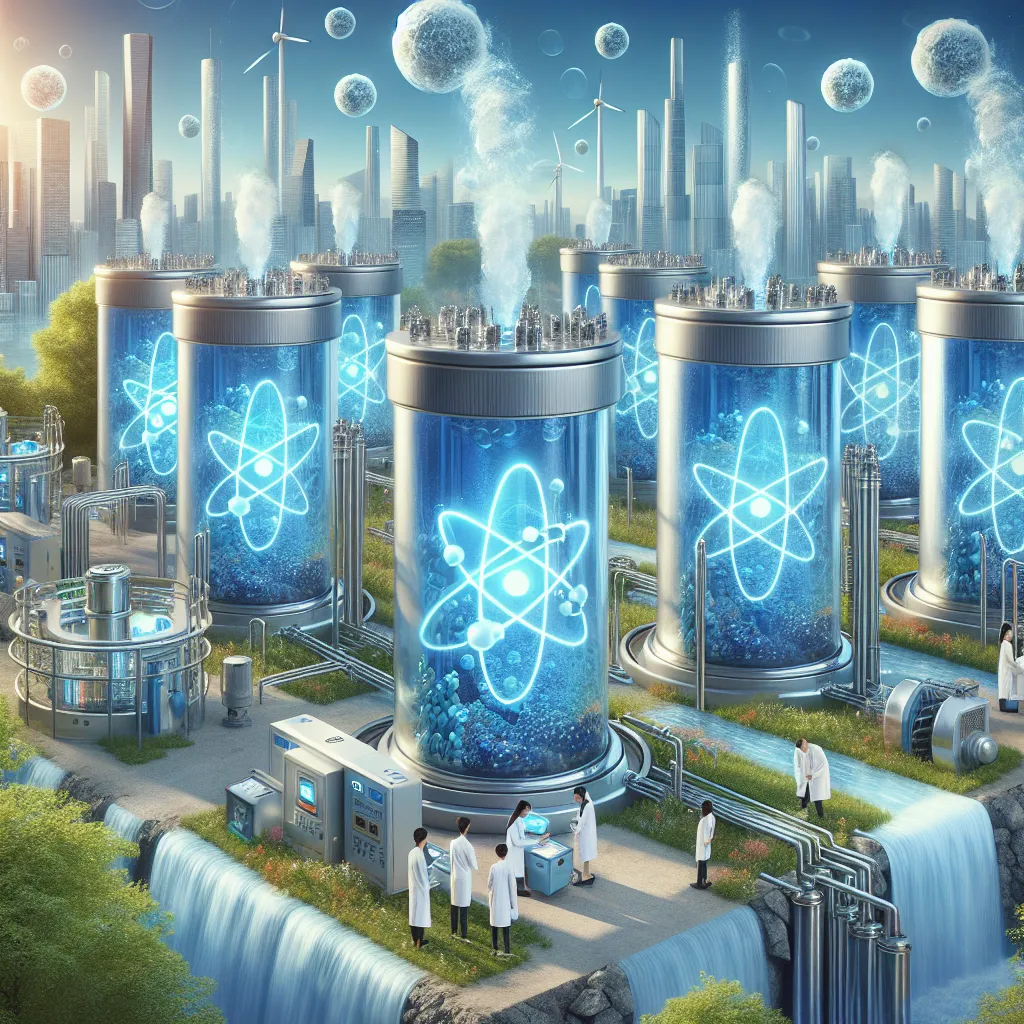The Power of Hydrogen Generators: A Promising Solution for Clean Energy
The Power of Hydrogen Generators: A Promising Solution for Clean Energy
As the world looks for sustainable and environmentally friendly sources of energy, hydrogen generators have emerged as a promising solution. With the ability to produce clean energy by harnessing the power of hydrogen, these generators offer a multitude of benefits for a greener future.
What is a Hydrogen Generator?
A hydrogen generator, also known as a water electrolyzer, is a device that uses electricity to split water molecules into hydrogen and oxygen gases through a process called electrolysis. The generator consists of an electrolyte solution, two electrodes (an anode and a cathode), and an external power source.
When an electric current passes through the electrolyte solution, water molecules are split into their constituent elements. Hydrogen gas is produced at the cathode, while oxygen gas is released at the anode. The hydrogen gas can then be captured and used as a clean source of energy.
The Benefits of Hydrogen Generators
Hydrogen generators offer several advantages in the quest for clean and sustainable energy:
1. Clean and Renewable Energy Source
Hydrogen is considered a clean energy source because it produces no greenhouse gas emissions when used for combustion or electricity generation. When hydrogen is burned, the only byproduct is water vapor. Additionally, hydrogen is abundantly available in water, making it a renewable resource.
2. Versatility
Hydrogen can be used in a wide range of applications. It can be utilized in fuel cells to generate electricity, used as a clean fuel for vehicles, or even stored for later use. Its versatility makes it an attractive option for various industries.
3. Energy Storage
One of the key challenges in renewable energy is storage. Hydrogen generators provide a solution by enabling the storage of excess energy produced from renewable sources, such as wind or solar, by converting it into hydrogen. This stored hydrogen can then be converted back into electricity when needed, ensuring a continuous and reliable energy supply.
4. Reduced Dependency on Fossil Fuels
Hydrogen generators offer a potential solution to reduce our dependence on fossil fuels. By replacing traditional energy sources with hydrogen, we can significantly mitigate the negative environmental impacts associated with burning fossil fuels, such as air pollution and climate change.
5. Increased Energy Efficiency
Hydrogen generators have the potential to be highly efficient in converting electrical energy into hydrogen gas. With advancements in technology, these generators are becoming more energy-efficient, making them a viable option for clean energy production.
Challenges and Future Outlook
While hydrogen generators hold great promise, there are still several challenges that need to be addressed for widespread adoption:

1. Cost
Currently, the cost of hydrogen production is relatively high compared to conventional energy sources. This is mainly due to the high energy input required during electrolysis. However, as technology advances and economies of scale are achieved, the cost is expected to decrease.
2. Infrastructure
To fully utilize the potential of hydrogen generators, a robust infrastructure needs to be established. This includes hydrogen storage and transportation systems, refueling stations for hydrogen-powered vehicles, and integration into existing energy grids.
3. Safety Concerns
Hydrogen gas is highly flammable and requires careful handling and storage procedures to ensure safety. Adequate safety measures need to be in place to prevent accidents and mitigate any potential risks associated with the use of hydrogen.
4. Public Awareness and Acceptance
The general public needs to be educated about the benefits and safety of hydrogen generators. Raising awareness and fostering acceptance of this technology is crucial for its successful integration into our energy systems.
The Future of Hydrogen Generators
Despite the challenges, the future looks promising for hydrogen generators. With ongoing research and development, advancements in materials, and increased collaboration between industries and governments, hydrogen generators have the potential to play a significant role in our transition to a sustainable energy future.
Investments in hydrogen infrastructure and production technologies are already gaining momentum worldwide. Countries like Japan, Germany, and the United States have launched initiatives to promote hydrogen as a key component of their energy strategies, further driving the growth of hydrogen generators.
In conclusion, hydrogen generators offer a clean and versatile solution for sustainable energy production. With their ability to produce clean energy, store excess renewable energy, and reduce our reliance on fossil fuels, hydrogen generators have the potential to transform our energy landscape. However, overcoming the challenges and ensuring public acceptance will be crucial in harnessing the full potential of this technology.
